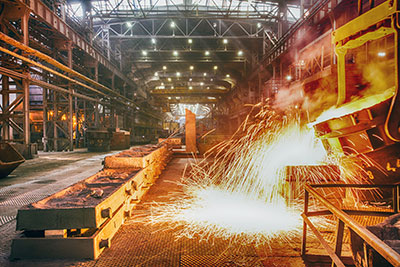Iron ore: there will be excess supply

Surplus is not always good. According to analysts Goldman Sachs, in 2015 global iron ore market expects oversupply in relation to products coming by sea, with the decline of steel production in China. New estimates point to a surplus in the amount of 175 million tons is 145 million that had been expected earlier. Furthermore, the predictions of analysts in the current year the demand will be less production at 72 million tons, up cost, the average annual price of raw materials will amount to 109 USD per ton, but next year it will drop to the level of 80 USD per ton.
Reduction of growth in steel production in China had a negative impact on the world spot market, where since the beginning of 2014 the price of iron ore fell 27%, as major Australian mining company ore, Rio Tinto and BHP Billiton, are expanding capacities in transforming scarce in the surplus market. As noted by analysts at Goldman Sachs, the market at the moment can not boast of a balance of supply and demand, although structural surplus is minimal. China ceases to be a kind of «sponge», absorbing the excess ore. According to data provided by «The Steel Index» at the end of may this year, the spot price of iron ore containing 62% iron delivered in China sea port of Tianjin fell 1%, or 97.5 USD per ton — the lowest price since the fall of 2012. However, analysts at Goldman Sachs expect that some price stability can create problems with supply of Indian raw materials and the tense situation with the port workers Australian Port Hedland.
The constant build-up of China’s own economic performance can not cause the investors a certain discontent, the situation has a significant impact on the prices charged for iron ore. In March, the price of ore in China fell by 8.3%, which amounted to 104,7 USD per ton. Such a sharp decrease not be the best influence on mining companies.
According to analysts at BMO Markets in 2014 the content of the raw materials in seven major global mining companies is 58%, and a fall of prices it does not allow the possibility of growth in the dividends of shareholders and blocks a new program aimed at share buybacks. According to analysts, the continuation of falling of quotations would significantly reduce guaranteed payments to shareholders.


